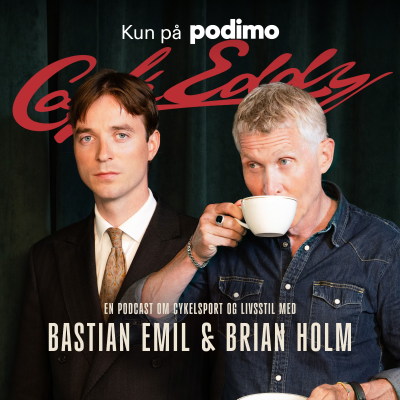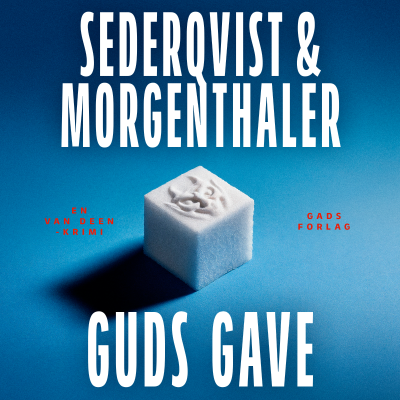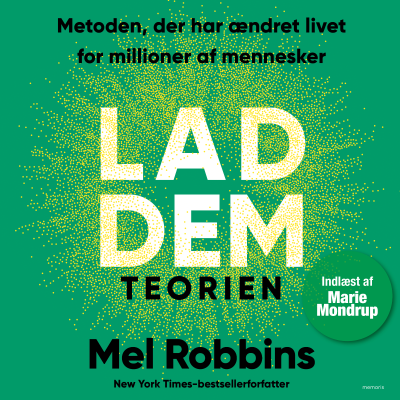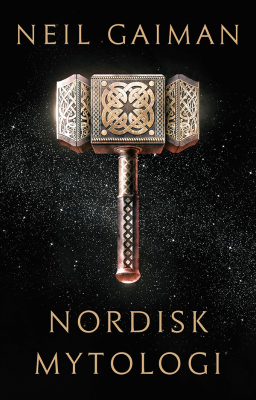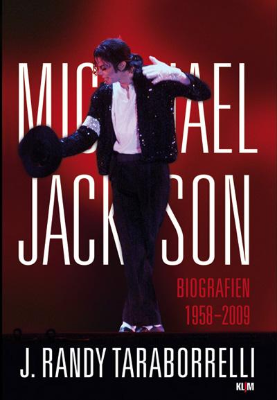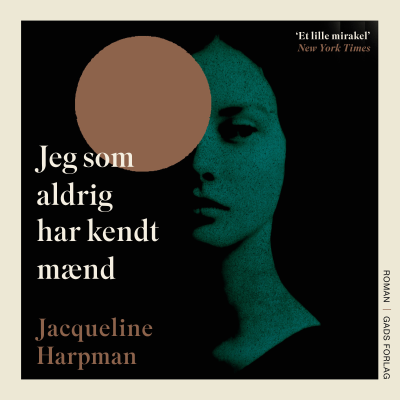
Post Christian Era
engelsk
Personlige fortællinger & samtaler
Prøv gratis i 7 dage
99 kr. / måned efter prøveperioden.Opsig når som helst.
- 20 lydbogstimer pr. måned
- Podcasts kun på Podimo
- Gratis podcasts
Læs mere Post Christian Era
A Place for 21st Century Christian Radicals
Alle episoder
16 episoderThe Anti-Christian Religion Called Social Justice
[http://www.postchristianera.com/wp-content/uploads/2020/07/RSJ-Feature-Image2.jpg]This is a chaotic time. The Christian has been forced to think and rethink his or her deeply held beliefs and presuppositions regarding the many claims of systemic social injustice, sparked by the death of George Floyd at the hands of a white police officer. Let’s get one thing straight: any clearly identifiable act of injustice is rightly opposed and condemned by the Christian, regardless of whether it was motivated by race, sex, religion, or other social background. The details of George Floyd’s death appear to indicate an act of cruel injustice. But opposing individual acts of injustice is a different task than that of the Social Justice movement. The Social Justice movement — that is, the academia and activist backed social and political movement that makes most of the noise — are the folks that have rewritten the playbook on civil rights and are using more radical definitions of racism to move the hearts and minds of the American public to specific ends. It may surprise some Americans that the Social Justice cause is so widely accepted in media, schools, businesses, and much of the public square. It may also surprise Christians to learn that Social Justice is accepted in many churches and Christian institutions. What I wish for you, dear brother or sister in Christ, is to see the Social Justice movement as more than a group of angry young people or a grassroots campaign that has emerged recently. It is more than a political movement wishing to change a few policies. It is more than a call for people of different races and backgrounds to treat each other with the same love and respect that we treat our family and expect in return. It is a movement that no longer works at the micro or individual level, but has demands at the macro or institutional level because it sees race as the primary force driving the world’s problems. Moreover, the Social Justice movement has become a religion that is thoroughly in opposition to basic tenets of the Christian faith. And Social Justice is not only a religion, it is the civic religion of our day. THE RELIGION OF SOCIAL JUSTICE I feel the need to say again; there are well meaning individuals that have taken up the cause to bring peace among social classes and provide aide to those in need. These are not necessarily practitioners of the Religion of Social Justice. Movements like Black Lives Matter, corporations like the New York Times, academic institutions like the Smithsonian Institute, and many prestigious universities are the ardent evangelists of the Religion of Social Justice. Just turn on the news and you will see religious acts every night. You will see the mass proselytizing on the streets of major cities in the United States. [http://www.postchristianera.com/wp-content/uploads/2020/07/RSJ-Proselytizing-low.jpg] You will see the iconoclasm of the Religion of Social Justice urging the removal of competing symbols. [http://www.postchristianera.com/wp-content/uploads/2020/07/RSJ-Remove-Statue.jpg] You will see the raising of new icons of martyrs and symbols of the religion [http://www.postchristianera.com/wp-content/uploads/2020/07/RSJ-Icons-low.jpg] You will see religious rites; symbolic or real gestures of religious significance.[http://www.postchristianera.com/wp-content/uploads/2020/07/RSJ-Kneeling-low.png] More importantly, the Religion of Social Justice promotes an ideology. The ideology speaks to the minds and hearts of followers in religious and anthropological terms. The fact that dissenters of the ideology are punished so extremely turns the ideology into religious dogma. First, the religion provides a framework for seeing the world, which traditional religions have always done for their adherents. In the case of Social Justice, it portrays the force driving the plight of humanity as class struggle; and the salvation from that plight as a dismantling of classes so that humanity can flourish. For example, in this view, the reason why there is poverty and crime is because one group (whites, males, etc.) have more power than others. Salvation would be to ensure that all races have the same amount of power, causing crime and poverty to naturally be eliminated. Because class struggle drives the course of humanity, every aspect of life must be seen as something that either furthers or dismantles class struggle. It is either holy or anathema. For this reason, the new morality of the Religion is determined by your efforts (or lack thereof) to dismantle systems of class struggle. Every word you say, every gesture [https://www.nytimes.com/2019/12/15/us/ok-sign-white-power.html] you make, every commercial interaction [https://kutv.com/news/nation-world/portland-bakery-fires-employees-for-refusing-to-serve-black-woman-after-closing], every political policy or candidate you support, every historical figure [https://www.nprillinois.org/post/lincoln-race-great-emancipator-didnt-advocate-racial-equality-was-he-racist#stream/0], every academic article [https://www.pnas.org/content/early/2020/07/09/2014148117], every scientific discovery, every classic novel [https://www.telegraph.co.uk/news/2018/02/12/harper-lee-mark-twain-banned-minnesota-schools/], every government organization [https://www.npr.org/sections/health-shots/2020/07/13/889769017/cdc-employees-call-out-agencys-toxic-culture-of-racial-aggression] — every aspect of life — is either encouraging class struggle or not; holy or anathema. With the new morality comes new moral judgments and condemnations. First, the mob — I mean, the Magisterium — will punish a person, their family, or their business for sinful behavior. For example, a liberal yoga studio owner in Denver who employs homosexuals and people of color was accused of not doing enough to speak out against racism [https://coloradosun.com/2020/06/29/kindness-yoga-closure-during-black-lives-matter/]. Within days, the yoga studio, financially hurting from the effects of COVID, received hundreds of angry emails and cancellations of their support, forcing the owner to close all nine locations for good. Sometimes, pure sacrifice of innocents is needed in the Religion of Social Justice. Consider the two employees of a Portland bakery who were fired for refusing to serve a black woman after the bakery had already closed [https://kutv.com/news/nation-world/portland-bakery-fires-employees-for-refusing-to-serve-black-woman-after-closing]. The owner admitted they were following company protocol and did nothing wrong. However, his reason for firing the employees was that “sometimes impact outweighs intent”. A sin in the Religion of Social Justice is any act that does not give a minority race, ethnicity, gender, or social class whatever it is they demand. The Religion claims that any inequality of any circumstance for members of different classes furthers injustice amongst the classes and is punishable to the most extreme extent. Recently, Tucker Carlson (conservative analyst for Fox News) has said that the New York Times (major media outlet for the Religion of Social Justice) will publish his new address, even though he moved from Washington D.C. to avoid death threats him and his family have received [https://www.marketwatch.com/story/protesters-to-tucker-carlson-we-know-where-you-sleep-at-night-2018-11-08] for his critical view against Black Lives Matters. The Religion does not look lightly at unbelievers. Because there are so many examples of the Magisterium pronouncing judgment and enacting punishment to individuals, their families, and their businesses, many feel the need to placate this religious mob. They go out of their way to pronounce their faith in the Religion of Social Justice to avoid judgement. Companies like Amazon [https://twitter.com/amazon/status/1267140211861073927?s=20], the NFL [https://twitter.com/NFL/status/1266852547890839552?s=20], Marvel Studios [https://twitter.com/MarvelStudios/status/1267202512857096192?s=20], Coca-Cola [https://twitter.com/CocaCola/status/1268176865967169537?s=20], and a host of others have made public statements ensuring they’re on the right side of the Religion’s righteous anger. > pic.twitter.com/yI4MYEDz4C [https://t.co/yI4MYEDz4C] — Amazon (@amazon) May 31, 2020 [https://twitter.com/amazon/status/1267140211861073927?ref_src=twsrc%5Etfw] When one commits the sin of questioning the beliefs of the Religion, one must quickly repent and pay penance; often times they are not absolved of their sins. Like the former Obama campaign strategist who tweeted data showing that race riots reduce Democratic voting. The mob was angry. He tried to repent, saying he was irresponsible with data, but he was not absolved and was fired days later [https://nymag.com/intelligencer/2020/06/case-for-liberalism-tom-cotton-new-york-times-james-bennet.html]. A Los Angeles soccer player was fired for views that his wife made public [https://www.nydailynews.com/news/national/ny-galaxy-player-fired-after-wife-makes-racist-comments-20200605-ny5dcvambbgixl2e7o3pqvkhcy-story.html], suffering for the sins of the family. Or the liberal economics professor who lost his job because he didn’t think BLM asking to defund the police was a good strategy [https://www.nationalreview.com/2020/06/the-krugman-led-mob-comes-for-academic-freedom/]. Once a believer, excommunicated as an apostate. These stories that are printed and repeated in our culture demonstrate that the Religion of Social Justice is thecivic religion of the United States. The effect of repeatedly publishing these stories is, anthropologically speaking, a demonstration of who is good and who is evil in our culture. They set the terms for who is “us” and who is “them”. They teach members of our culture that to further this specific Religion is the right thing to do; and to oppose it will bring ruin. Institutions from universities to companies and charities to churches have pathetically surrendered to the Religion without thinking through its tenets. For this reason, the mob feels justified in every act of its vengeance. The conclusion is that we have impassioned religious wars playing out on the streets of major US cities in the form of “protests”. THE RELIGION OF SOCIAL JUSTICE IS ANTI-CHRISTIAN The Christian is undoubtedly seeing the rise of the Religion and considering whether it is compatible with the Christian faith. The societal pressure to adopt its tenets is immense. There are many who have openly and simplistically syncretized the two seemingly well. After all, doesn’t God promote Justice? Didn’t Jesus command us to care for the least of these1 [http://www.postchristianera.com/blog/the-anti-christian-religion-called-social-justice/#easy-footnote-bottom-1-1452]? While the Bible is clear that God desires justice in the form of personal treatment2 [http://www.postchristianera.com/blog/the-anti-christian-religion-called-social-justice/#easy-footnote-bottom-2-1452] and civic rule3 [http://www.postchristianera.com/blog/the-anti-christian-religion-called-social-justice/#easy-footnote-bottom-3-1452], the Religion of Social Justice is all together an entirely different thing. First, it should be noted that Justice is not the goal of the Religion of Social Justice; at least in the traditional sense of impartially setting things right, or even the Biblical sense of holding individuals and groups accountable to the laws of God. The goal of the Religion is Equity. Equity, which is kind of a new buzzword, is literally defined as all classes having all the same social-economic outcomes. In other words, everyone has the same material things and social privileges. From the Center for Social Inclusion: > we achieve racial equity when race no longer determines one’s socioeconomic outcomes4 [http://www.postchristianera.com/blog/the-anti-christian-religion-called-social-justice/#easy-footnote-bottom-4-1452] Popular social justice author Ibram Kendi defines equity like this: > Racial inequity is when two or more racial groups are not standing on approximately equal footing.5 [http://www.postchristianera.com/blog/the-anti-christian-religion-called-social-justice/#easy-footnote-bottom-5-1452] This is different from equality. Equality gives everyone the same rights and opportunities, but makes no determination of outcome. For example, the Religion of Social Justice says that more whites than people of color owning their own homes is an example of inequity. Even though legally all people have the same rights and opportunities to own their own home, the disparities in actual home ownership among people of different races needs to be fixed. And this can be played out in all areas ad nauseam; college graduations rates, individuals in jail, number of CEOs running big companies, number of teachers and law enforcement, percentage of doctors, number of lawyers, number of chefs, and artists, and bankers, and pilots, and on and on. (Curiously, I’m waiting for the Religion of Social Justice to protest the inequity in racial makeup of major league sports like the NBA and NFL) Never mind that the goal of equity is statistically impossible, the theory is also founded in a very radical principle. According to the Religion of Social Justice: > One either believes problems are rooted in groups of people, as a racist, or locates the roots of problems in power and policies, as an antiracist.6 [http://www.postchristianera.com/blog/the-anti-christian-religion-called-social-justice/#easy-footnote-bottom-6-1452] In other words, all of the world’s problems are somehow rooted in improper racial relations. In their view, (Kendi calls it Antiracism), if we wish to solve the problems within humanity, it can only be solved through radical equalizing measures, like forcing more people of color to be doctors, professors, bankers, politicians, etc. It should be obvious by now that the Religion’s understanding of Humanity and its goal for Humanity’s progress is completely different from orthodox Christianity. The Christian faith teaches that Humanity’s problems are due to the effects of a broken world and a Human race imbued with a propensity towards sin. Sin driven by race is only one facet of mankind’s tendency toward evil. The curse that God has placed on this world7 [http://www.postchristianera.com/blog/the-anti-christian-religion-called-social-justice/#easy-footnote-bottom-7-1452] in response to Adam and Eve’s sin is a world where resources (food, materials, etc.) require hard labor and cooperation with God’s creation (plants, animals, rocks, etc.). Many of the things that aid life — Buildings, electricity, engines, cars, or a single house — is the result of an amazing cooperation between Man’s labor and God’s creation. This also means that there will always be the possibility of scarcity. Mankind has and will always experience the scarcity in the form of hunger, or poverty, or lack of physical care. Life will always have struggle; Christians have known and accepted this since the beginning. The job of the Christian is not to undo that curse and bring about material salvation, for only Christ can and will do that. The job of the Christian is to work within the confines of that curse and care for every human being that they can because every human being is a creature endowed with the image of God8 [http://www.postchristianera.com/blog/the-anti-christian-religion-called-social-justice/#easy-footnote-bottom-8-1452]. The Religion of Social Justice views humans as essentially moral and good and the world in full cooperation with mankind and itself. When classes are dismantled, mankind will naturally flourish. This comes from its Marxist roots and 18th century philosophy in the Religion of Humanity, but is ultimately in complete contradiction with essential Christian orthodoxy and Biblical teaching. As long as there is sin, there will be violence and improper treatment of our fellow man. As long as we live in a broken world, there will be disparities in individuals and people groups’ resources and living conditions. This is not to say that the Christian should give up caring for one another, indeed our work on this earth is to bring the love, peace, healing, and beauty of God to broken individuals in a broken world. And we get to experience God ourselves as broken people now filled with the Spirit of the Living God. But the salvation of the human soul is the job of Christ alone and his work on the cross. And the redemption of a broken world belongs to God at the return of Christ when he restores the world to the state of Eden. I pray that our brothers and sisters in Christ who are deeply contemplating this new Religion will consider that the Christian faith has given us the answers to these persistent and global problems. Our job is to be obedient to the way of Christ and to patiently await the restoration of our broken world at the return of Christ.
Lord, Let Us Not Be Ruled By Desire
[http://www.postchristianera.com/wp-content/uploads/2020/01/vanity_fair2_low.jpg]The itch is the most innate experience of human desire. It is so well understood that to say you want to “scratch an itch” is synonymous with fulfilling one’s desires exclusively for its gratification; despite the well-known consequences. “Don’t scratch!”, we warn our children – and sometimes ourselves – for we know that scratching accomplishes no long term benefit. At the same time, scratching an itch will not only fail to relieve the desire, but make the desire to scratch more intense. Those of us that live in the 21st century post-Christian era need a reminder of the effects of “scratching an itch”. MORALITY FROM DESIRE Andrea Long Chu is a writer who specializes in gender theory. While born a male, he is transgender and considers himself a female. Last year, he wrote an article for the New York Times reflecting on his decision to have gender reassignment surgery, titled “My New Vagina Won’t Make Me Happy [https://www.nytimes.com/2018/11/24/opinion/sunday/vaginoplasty-transgender-medicine.html]“. His opening paragraph summarizes his opinion of his desire to remove his penis and manufacture a vagina: > Next Thursday, I will get a vagina. The procedure will last around six hours, and I will be in recovery for at least three months. Until the day I die, my body will regard the vagina as a wound; as a result, it will require regular, painful attention to maintain. This is what I want, but there is no guarantee it will make me happier. In fact, I don’t expect it to. That shouldn’t disqualify me from getting it. [http://www.postchristianera.com/wp-content/uploads/2020/01/andrea_long_chu2-_low.jpg]Andrea Long Chu, gender studies writer receives fabricated female genitalia in 2018The article argues that both conservative and liberal opinions on these medical treatments are erroneous. Conservatives say these surgeries shouldn’t happen because they feed a delusion and don’t heal the patient. Liberals say the surgeries should happen because affirming an individual’s convictions about their sexual identity is humane and leads to psychological healing. In Chu’s view, both approach a trans individual’s request as “little kings” over their bodies. So, Chu argues, both are wrong because they deny the individual the right to do what they want with their body. In other words, a parent’s warning to their child, “don’t scratch that itch because it will damage your skin and make it itch more” is just as bad as encouraging “scratch the itch as much as you can, as often as you can, as hard as you can. You’ll feel better!” That’s because both deny the child the right to experience the itch in the way he or she chooses to experience it. Chu’s argument is imbued with the spirit of our age. That is, the discussion about how an individual understands and lives with their desires no longer rests upon identifying and pursuing what is “good”; for both conservatives and liberals believe they are doing so. Chu argues that both are mistaken because their understanding of “good” does not include “desire” as a factor; to which Chu factors “desire” almost exclusively as that which is “good” Although this argument is not mainstream, it has appeared on mainstream media and is being praised by the academics that maintain the ever evolving gender studies in modern academia. More importantly, this view is born from a culture that has no connection to religion, which has historically been the institution that guides us toward the “good”, so it would be understandable that our culture as a whole will come to the same conclusion: what is Good is what I Desire. DESIRE AS MASTER The 21st century Christian is at a major impasse. On the one hand, Jesus proclaims that “if the Son sets you free, you will be free indeed”1 [http://www.postchristianera.com/blog/lord-let-us-not-be-ruled-by-desire/#easy-footnote-bottom-1-1398]. And St. Paul tells us that “all things are lawful”2 [http://www.postchristianera.com/blog/lord-let-us-not-be-ruled-by-desire/#easy-footnote-bottom-2-1398]. So, many Christians embrace the ability to live out the Faith attempting to balance their own desires with Christian discipline. This leads the Christian to simply refrain from the list of sins spelled out in the Bible and believe they have won the battle over sin. For if the Bible has no prohibitions on specific activities, leisure, or lifestyles, aren’t we allowed to embrace them as God’s good gifts? Why would God frown upon us if we enjoy playing basketball, or watching movies, or eating the foods we like, or drinking alcohol, or intimacy with our spouse? What is often lost in our understanding of our desires is their unquenchable nature. Our “freedom” that Christ provides is from the “slavery of sin”3 [http://www.postchristianera.com/blog/lord-let-us-not-be-ruled-by-desire/#easy-footnote-bottom-3-1398]. Sin is not merely doing a prohibited activity, nor is it fulfilling a desire “too much”. Sin is being mastered by any activity, no matter how much it is done or not done. Jesus described this in the Sermon on the Mount4 [http://www.postchristianera.com/blog/lord-let-us-not-be-ruled-by-desire/#easy-footnote-bottom-4-1398] where the spiritual trajectory (anger, lust, etc.) is the same as the temporal activity (murder, fornication, etc.). This shows that any of our desires can easily become masters over us. It is for this reason that Jesus explains that “whoever would save his life will lose it, but whoever loses his life for my sake and the gospel’s will save it.”5 [http://www.postchristianera.com/blog/lord-let-us-not-be-ruled-by-desire/#easy-footnote-bottom-5-1398]. He warns us that “No one can serve two masters; for either he will hate the one and love the other, or he will be devoted to one and despise the other.”6 [http://www.postchristianera.com/blog/lord-let-us-not-be-ruled-by-desire/#easy-footnote-bottom-6-1398] Our battle with our desires is not a battle of moderation; it is a battle of mastery. DESIRE IN THE 21ST CENTURY This problem has only accelerated in the 21st century. If our generation can be defined by any one thing, it may very well be defined by its overabundance. We literally have the world at our fingertips. We can obtain any commodity at any time. We can purchase any experience we can think of. On top of that, the Christian who has an obvious obtained abundance is thought to have divine favor, or simply be #Blessed (this can also be applied to our country). Shouldn’t we at some point recognize the abundance as a curse? When years ago, most people accepted that not everyone will drive a sports car, or own their dream home, or have the perfect body, or experience the world, wasn’t it a bit easier to escape the “mad masters” of our desires? Today we are told that “you can drive away in a new Lexus”, or you can turn your dream home into a reality, or you can have that body you always wanted, or that buying a ticket to this event will “change your life”. Does this not set our hearts up to be mastered? Today, we can have anything we want, and its killing us. The ease of porn and divorce is ruining our marriages and families. The availability of loans and careers is making us less satisfied with what we have. Social Media is making us long for someone else’s life. The availability of food is making us sick. The availability of information is making us dumb. And at this point in history, it seems the Christian is [http://www.sbclife.net/article/1473/obesity-in-the-body-of-christ]no [https://www.barna.com/the-porn-phenomenon/#.Vp5-fzb6fNU]better [https://www.pewforum.org/2018/08/01/why-americans-go-to-religious-services/?utm_source=Pew+Research+Center&utm_campaign=c2bd78afdc-RELIGION_WEEKLY_2018_10_10&utm_medium=email&utm_term=0_3e953b9b70-c2bd78afdc-399934421#religious-and-demographic-profiles-of-types-of-non-attenders] at understanding and wrestling with their desires than the non-Christian. We have embraced the “Morality as Desire” ethic. REMOVING OURSELVES FROM VANITY FAIR Today’s Christian has a difficult time seeing their desires as all that harmful. First, as Screwtape reminds Wormwood, “In modern Christianity…I see few of the old warnings about Worldly Vanities, the Choice of Friends, and the Value of Time.”7 [http://www.postchristianera.com/blog/lord-let-us-not-be-ruled-by-desire/#easy-footnote-bottom-7-1398] Second, modern Christianity often fails to see that we live in Vanity Fair; the town in John Bunyan’s allegory, Pilgrim’s Progress. The town is described as > “a Fair wherein should be sold all sorts of Vanity, and that it should last all the year long: therefore at this Fair are all such Merchandize sold, as Houses, Lands, Trades, Places, Honours, Preferments, Titles, Countries, Kingdoms, Lusts, Pleasures, and Delights of all sorts, as Whores, Bawds, Wives, Husbands, Children, Masters, Servants, Lives, Blood, Bodies, Souls, Silver, Gold, Pearls, Precious Stones, and what not?”8 [http://www.postchristianera.com/blog/lord-let-us-not-be-ruled-by-desire/#easy-footnote-bottom-8-1398] Have we realized that we reside in a place and time that offers all manners of indulging our desires with the least amount of resistance? Or are we still operating under the assumption that the glories of American capitalism are God’s gift to humanity? Its time we see that the way our culture has ceased the economic potential is for the worse. The Open Market has opened the potential to fulfil each and every desire at a moment’s notice; a market of Masters. Is it also possible that we have not yet realized when we have become mastered? Let’s go back to the itch. When we indulge the desire to scratch an itch, relief comes but only temporarily. Our desire to scratch increases; perhaps also our disappointment in being unable to refrain ourselves from scratching. We don’t want to scratch again because we know the desire won’t be satisfied, but we can’t stop thinking about it. At what point do we say to ourselves, “the itch has become my master”. In a personal example, it took me about a full year before I realized I was mastered by my desire for a Starbucks coffee. There is obviously nothing sinful about a cup of coffee, but at one point I realized that every morning I would think about that sweet Caramel Macchiato and be unable to stop thinking about it until I had one. Nevermind that the cup of coffee is expensive and way to sugary to be considered healthy, the more important fact is its affect on my mind and spirit. Its my understanding that my allegiance to Christ is under attack by this desire for a cup of coffee, for I can only have one master. What I ask of you, dear brother or sister in Christ, is to reflect on all the ways in which you are mastered. I gave a simple example, but I assure you I am mastered by much more powerful and noxious desires than a cup of coffee. Its only when we realize we are mastered that we can allow Christ to remove the fetters. RULED BY CHRIST My example gets replicated in all other areas of desire. We are mastered by our desires for food and sex, buying stuff and having experiences, gaining attention and procuring status. We can be mastered by our family, our work, our hobbies, and our good intentions. Our desires generally come from a longing for what is good, which is to say, a longing for the things of God. But our sinful nature desires the gifts rather than the gift giver and so we let the gifts have mastery over us. In order for us to overcome the lords of desire, we must realize that only Christ offers satisfaction to the desires of life. I asked my children once, “would it be good if God changed us to never need to drink water again.” They looked puzzled, so I asked again, “if God could change our bodies to continue being healthy without ever needing to drink a drop of water, would that be good?”. Their answer was something like “no, we need water!!” To me this demonstrates that our human nature has conditioned us to see need and desire as necessary and good. But we know that to need water is a crutch; just ask anyone who has been dehydrated. And water is not really all that great a solution to the problem of thirst, because every time we drink water, we know we will need another drink sometime soon. For this reason, Jesus said: > “Everyone who drinks of this water will thirst again; but whoever drinks of the water that I will give him shall never thirst; but the water that I will give him will become in him a well of water springing up to eternal life.”9 [http://www.postchristianera.com/blog/lord-let-us-not-be-ruled-by-desire/#easy-footnote-bottom-9-1398] We must realize that being ruled by Christ is the only solution to our desires; our itches. For as Augustin said: > “You have made us for yourself, O Lord, and our heart is restless until it rests in you”10 [http://www.postchristianera.com/blog/lord-let-us-not-be-ruled-by-desire/#easy-footnote-bottom-10-1398] He points not only to Christ as a solution to our desires, but as the very purpose for our existence. Fulfillment and contentment are the natural biproducts of being ruled by Christ. They are indications that we are living the way God intended, not the goal in life. I pray that we can truly see how dangerously our desires affect our faithfulness, and that we can be ruled by Christ, and Christ alone. In a recent interview [https://www.vulture.com/2019/10/andrea-long-chu-on-her-debut-book-females.html] with Andrea Long Chu, she talks about her transition surgery: > Nearly a year after the surgery, she says she’s feeling more miserable than she’d expected. “It’s perversely vindicating,” she adds with a wry smile. Dressed in a jumpsuit patterned with blue-and-white flowers, she brushes a curtain of curls away from her face with a flip of her wrist, revealing a tattoo of a geometric vulva on the underside of her forearm. “It’s very dangerous to get what you want.” Very dangerous, indeed.
C’Mon Dads, Do It Yourself!
[http://www.postchristianera.com/wp-content/uploads/2019/06/diy2_low.jpg]Father’s Day was last week, and I hope many of us took the time to show our fathers our appreciation for their contribution to our lives. One of those contributions to the family has long been a father’s expertise with common household tasks, lovingly called “Do It Yourself” (or “DIY”). You know, household tasks like unclogging a drain, changing the oil in your car, painting a room, etc. Apparently, that contribution is in decline. According to a report by Alarm.com [https://www.alarm.com/blog/DIYDads], millennials dads do not have the same DIY skills that their father’s generation had. In it, they report that: > Millennial Dads are less inclined than their fathers’ generation to roll up their sleeves and tackle traditional DIY tasks, preferring to call for professional help on tasks ranging from unclogging sinks to assembling furniture. They also report that millennial dads don’t have the same tools as their fathers. Amazingly, more than 30% of millennial dads do not own a hammer! The report gave some of the survey respondents “explanations” for the millennials diminished DIY skills, which I would like to take a quick second to debunk. First, some respondents said that modern technology makes DIY tasks harder and in more need of support; like smart locks and doorbell cameras. While these technologies usually involve another company “hosting” certain parts of the service, like the recorded video on a camera system, they still involve technical and mechanical skills to install and operate. Second, they say that “handiness” now includes technology, so I suppose that means that millennials really are DIYers because they can do technology. That’s all fine and good, but what about the non-tech things? Can they still swing a hammer? Install a light? Change the brakes on a car? I don’t think just because things get more digital, they excuse you from having mechanical skills. We can expand the definition of DIY, but not outright eliminate the need for certain skills. Using technology as an excuse to say a father doesn’t need to have other mechanical skills is akin to saying a father doesn’t need to know about his car because he can put gas in it. Lastly, the respondents said that priorities have changed in a father’s life, so that “today’s time-pressed Dads are also faster to outsource time-consuming home maintenance to professionals”. That just tells me that today’s dads are too busy, not that it is necessarily a reason to ditch “old-timer” skills. It also tells me that tomorrow’s dads are going to be worse DIYers. HIRE PROFESSIONALS SO YOU CAN HAVE TIME FOR “LIFE” This last “explanation” also indicates that dads simply don’t value DIY skills. It speaks to what is valuable in our culture. I can see a father who hires a professional auto mechanic, let’s say, so that he can spend time with his family. But what is it he is doing with his family? Watching a movie? Going to Disneyland? Again, all fine and good, but there are plenty of fathers who spend time with their family doing DIY stuff; whether its common tasks or more complex hobbies. Contrary to contemporary thought, spending time with your family doesn’t always mean only doing things that are completely leisurely and passive. Some fathers and families actually enjoy doing things that require work. I know a father and daughter who spend time buying, restoring, and selling old furniture. So DIY activities do not always exclude family time. This is the lie that usually gets sold with advances in technology. The argument sounds something like this: “buy this product/service/gadget so you spend less time doing task XYZ and more time enjoying life”. On the surface this sounds good, but what happens when we’ve hired out all of our chores and tasks? What is all this “life” that we are left to do? Is it all rock concerts and movies and vacations? This is the sort of picture that gets painted in the movie WALL-E. In the movie, the humans of the future have had technology do all of their chores and tasks, so that what is left are chubby people who don’t even walk on their own two feet anymore and have screens attached to their face. I think we are slowly seeing this prophecy being fulfilled. [http://www.postchristianera.com/wp-content/uploads/2019/06/diy1_low.jpg]The fate of humanity, according to the movie WALL-EThere was a time when life simply was menial task after menial task. This doesn’t mean that life was unfulfilled, but that every minute of life didn’t have to be filled with ultra-sensational life experiences to feel fulfilled. People understood their tasks and chores as the stuff of life and since they usually served one’s family, community, or other institution, the tasks were honorable. I believe that part of the decline in DIY activity is due to what we value, as a culture. We usually value entertaining and sensational experiences that others have created. In an article by Dennis Prager, writing in the National Review about how millennials don’t have hobbies anymore [https://www.nationalreview.com/2018/07/too-many-millennials-let-screen-time-crowds-out-real-pursuits/], he quotes Dan Scotti of the Elite Daily as saying: > He (Dan Scotti) concludes: “The fact that hobbies may be a thing of the past is an eerie thought. I can’t honestly say that I see hobbies such as ‘carpentry’ making a comeback at any time in the near future. . . . As sad as it may seem to older generations, we genuinely have an interest in Instagram, Twitter and other products of the digital age.” Dennis goes on to say: > Clearly, you don’t have to be a member of the “older generations” to think this sad. Here’s why: There is a world of difference between being active and being passive, between creating something and watching something, between doing something and being entertained. This insight into today’s generation regarding hobbies is similar to the DIY findings. Hobbies require time, effort, patience, and persistence. They are separate from careers because they are not typically pursued for any financial gain, but often because they are worthy pursuits with little financial gain. The addiction to passivity is a regression in humanity; its anti-life. Now, don’t get me wrong, I like a good movie as much as the next guy, but we have a culture that does not value anything that involves effort, time, sacrifice, skill, and labor. How can a person and a culture pursue goodness and worthy causes if it doesn’t value the disciplines required to achieve them? WHY CHRISTIANS NEED “DO IT YOURSELF” AND HOBBIES The decline in DIY skills and hobbies is of particular importance for the Christian. For one, DIY activities and hobbies, just like all other work, ties us to creation and the Christians mandate to cultivate our environment. When God put Adam in the garden, he gave him a command: > Then the Lord God took the man and put him into the garden of Eden to cultivate it and keep it. (Genesis 2.15) We are given a world to transform and provide order for the sake of God’s goodness and grace to be manifested within humanity. In our work, we participate in creations service toward humanity and God; and this does not stop when we go off the clock. In this most holiest of work orders, the most simplest task takes on a sanctity that can motivate one to excellence and gift one with satisfaction of a job well done, regardless of the scope. Second, the model of a Christian is wrapped in the image of Christ, who is described as a servant: > “For even the Son of Man did not come to be served, but to serve.” (Mark 10:45) As such, His disciples are called themselves to be servants toward one another and indeed all humanity: > As each part does its own special work, it helps the other parts grow, so that the whole body is healthy and growing and full of love.” (Ephesians 4:16 NLT) Therefore, our view toward the “menial tasks” of DIY projects and hobbies can actually join with the call of all Christians to be servants. We serve as though serving Christ and we give of our energies and labors freely with the same grace God served us with. Lastly, something precious is lost when we do not see DIY activities as valuable. We lose community. In his book The Careless Society [https://www.amazon.com/Careless-Society-John-Mcknight/dp/0465091261], John McKnight describes how our culture has lost its ability to hold tight communities. One of the major reasons is one he calls the “Professional Problem”. The idea is that since our culture is saturated with “professional services” for every need imaginable (and even some needs you didn’t know you had), we have stopped relying on each other and have therefore less of a reason to hold tight our community. As an example, McKnight points out that years ago, at the death of a family member, the family would console one another through closeness and the natural grieving process. Today, we have a professional “bereavement counselor” who is trained and experienced in helping others grieve. After news of this professional sinks in with all the members of the community, McKnight describes what ensues: > “Finally, one day the aged father of a local woman will die. And the next-door neighbor will not drop by because he doesn’t want to interrupt the bereavement counselor. The woman’s kin will stay home because they will have learned that only the bereavement counselor knows how to process grief in the proper way. The local clergy will seek technical assistance from the bereavement counselor to learn the correct form of service to deal with guilt and grief. And the grieving daughter will know that it is the bereavement counselor who really cares for her, because only the bereavement counselor appears when death visits this family.” What a depressing scene! Equally depressing is this article from The Guardian which asks if houses in the future will no longer have kitchens [https://www.theguardian.com/society/2018/jun/24/homes-without-kitchens-ubs-report]: > One factor driving the gradual extinction of the kitchen is the explosion of food delivery apps. According to UBS, food delivery apps are now, on average, in the top 40 most downloaded apps in major markets. They’re particularly beloved by millennials, who are three times more likely to order takeaway than their parents. “As this generation matures, home cooking could fade away,” the report suggests. The only thing that brings family together more than death is food. So many families and cultures gravitate around the home cooked meal that facilitates family connectedness across multiple generations. And now we are losing our connection to our communities – present and past – because younger generations don’t want to cook. Think about this. Playing music for your family or community isn’t really a thing anymore. Even in Laura Ingalls Wilder’s Little House books, Pa would usually play the fiddle for the family, and they loved him for it. There was a time when song was a universally accessible skill. You only need a little bit of practice and you could lead your family or community in bringing musical cheer to any occasion. But our culture only values music when produced “professionally”. Which is why at the family barbecue, we don’t bring our instruments, we bring the Bluetooth speaker; the 21st-century ghetto blaster. I am grateful that my wife’s family cooks tamales during Christmas as an entire family project. I see community when my neighbor spends 4 months repairing his Harley, and calls his friends to help. I am glad that I have the ability to help my neighbor fix his garage door. I am thankful that my dad has so many skills that I am still learning from him. I know that my life has been enriched by learning to “do it myself”; to realize that work and creativity and ordering the world around me is a sacred task. And I have learned to rely on good people who have much DIY skill to pass down. My daily attempts to follow the way of Christ is strengthened by my modest DIY activities. So c’mon dads…..do it yourself!
Jose Sanchez Del Rio
[http://www.postchristianera.com/wp-content/uploads/2019/04/jose-sanchez_low.jpg]My family has a small tradition on Good Friday where we take the train to Downtown Los Angeles and visit the Cathedral of Our Lady of the Angels. The cathedral is modern, but still spectacularly beautiful, with worship-inspiring art and architecture as well as a restful garden with reflective elements all around (my kids like the bronze animals they can play on). [http://www.postchristianera.com/wp-content/uploads/2019/04/jose-sanchez5_low.jpg]My wife, daughter, and mother reading one of Jose’s lettersWhile there yesterday, we stumbled on a display highlighting the story of Jose Sanchez Del Rio. Reading the story makes me think of the state of Christianity today, what us Christians may face in the future, and ask “will Christians be willing to suffer for their faith”? First, the story of Jose Sanchez Del Rio. He was a 14 year old boy from Mexico who wanted to fight in the Cristero Wars [https://www.cs.mcgill.ca/~rwest/wikispeedia/wpcd/wp/c/Cristero_War.htm], a struggle in the early 20th century between faithful Catholics and the Mexican government who wished to reduce the Church’s influence on its people. A poster in the display in the cathedral in LA writes this about him: > [http://www.postchristianera.com/wp-content/uploads/2019/04/jose-sanchez3_low.jpg]A poster in the cathedral telling Jose’s storyOn February 5, 1928, the young boy was captured during a battle and imporisoned in the sacristy of the church in which he had been baptized. In order to terrorize him, soldiers made him watch the hanging of one of the other captured Cristeros. But Jose encouraged the man, saying, “You will be in Heaven before me. Prepare a place for me. Tell Christ the King that I shall be with him soon” On February 10, 1928, the young man was brutally tortured. They sheered off the skins of his feet, and he was forced to walk on salt through the town to the cemetery, while being struck continuously. The young man screamed in pain but did not give up. The soldiers wanted to force him to renounce his faith, but they did not succeed. They continously stopped him and said, “If you shout: Death to Christ the King, we will forgive your life.” But he answered, “Long live Christ the King!” Once he arrived at the cemetery, he asked where his grave was, and in heroic fashion, he stood at the edge of his own grave, to save the executioners the work of transporting his body. As he continued to refuse to renounce his faith, the soldiers rushed at him and began to stab him. With each stab, the faith-filled fourteen your old shouted: “Long live Christ the King! Long live our Lady of Guadalupe!” The captain then shot him in the head, and his body was thrown into the grave, bathed in blood, while his soul soared into heaven. When we stumbled on this story, I seriously considered letting my children read through it; its pretty frightening. But I think it is important that our Christian communities hold up heroes of the faith like this young man. They are inspiring, and also force us to reflect on our own faith. Not every Christian will be asked to sacrifice in the same way Jose Sanchez did. In fact, the martyrs of the early Church at the hands of the Roman Empire often felt as though dying in the Colosseum was there life’s calling; and not for everyone. But whatarewe willing to sacrifice? How much safety and security are we willing to give up to be faithful. We often talk about Christ as the King, focusing on His power to help and redeem us. But how often do we consider living in the kingdom a life of sacrifice in service of the King who is often time despised? MEXICAN RELIGIOUS PERSECUTION OF THE 20TH CENTURY We may think about Communist Europe in the 20th century or modern day China and the Middle-East as places where Christians have been persecuted, but there are countries like Mexico who saw their own persecution. And they all follow the some fairly similar patterns. The Mexican Constitution of 1917 [https://en.wikipedia.org/wiki/Constitution_of_Mexico]forced a rebellion because several articles were used in an anti-Church manner. Article 3 prescribed completely secular-education. It read that education will be secular, free from religious orientation, and that “The educational services shall be based on scientific progress and shall fight against ignorance, ignorance’s effects, servitudes, fanaticism and prejudice”. “Science” and “fighting ignorance” sounds like every university’s motto against religious influence. Also sounds like the #ExposeChristianSchools [http://www.postchristianera.com/blog/exposechristianschools/] movement. Article 130 separated the Church from State, much like the US. But also added “Churches and religious congregations shall be organized under the law”. Combined with new land laws (Article 27), this essentially meant that the State could regulate, modify, and close churches and church-run organizations at its own discretion. Ministers could be limited, removed, and have their rights to vote revoked by the state. Like many other instances of governments suppressing religious activity, historians point to the governments desire for allegiance. It was believed that the Catholic Church (centered in Rome) held too much influence on Mexico. The government sought to essentially eradicate religion in Mexico because religious conviction and allegiance were seen to be anti-nationalistic and anti-liberal. Richard Roman puts it this way; that religious institutions, like the Catholic Church, “was exercised through its control of education, oral confession, etc”1 [http://www.postchristianera.com/blog/jose-sanchez-del-rio/#easy-footnote-bottom-1-1222]. This means that the only way to force allegiance to a nation to destroy religious education and its proliferation of ideas, values, and practices. OUR ALLEGIANCE TO CHRIST THE KING [http://www.postchristianera.com/wp-content/uploads/2019/04/jose-sanchez_low.jpg] [http://www.postchristianera.com/wp-content/uploads/2019/04/jose-sanchez_low.jpg]A Painting of Jose Sanchez by Renee Martinez Valadez – Notice the blood on his feetJose Sanchez Del Rio’s cries of “Long live Christ the King!” should be a reminder of our allegiance to the King. It is the opinion of many that the United States is starting down the same path that many other countries that have persecuted Christians went down, and we must question where our allegiance lies. Although not only coming from government, academic institutions and popular culture all paint Christianity in anti-science, anti-liberal, and anti-progress lights. More and more religious freedoms are being attacked, and religious institutions are seen as propagators of misinformation. The question is this: how do we build up Christians to have the faith to stay allied with Christ the King. Again, not everyone will face threats of death, but what happens when we are threatened with shame, ridicule, or disdain. Or what will we do when companies will no longer hire a Christian or schools will no longer accept Christian students’ views. How will we respond when being faithful means losing friends and family. These days may be coming, and our investment into communities of faith (churches, Christian institutions, families, friends, etc.) that build strong and connected groups of believers will be the only way to resist any attempts to suppress our faith. Fostering a Christian culture, in which every action of committed Christians springs forth from their faith, is the only way in which our faith will be of such high value that it is worth enduring any persecution. I pray that this Easter weekend and Easter season is a time of fostering unbreakable faith within your community of Christians. And I pray we continue to build each others’ faith to be of undeniable value worth fighting for.
The Flip-Flops of APU, and The Growing Plea for Traditional Christianity
[http://www.postchristianera.com/wp-content/uploads/2019/03/APU_flip-flop.jpg]Whew! Quite a saga at Azusa Pacific University over the last 6 months. You can read about the previous events here [http://www.postchristianera.com/blog/dismantling-azusa-pacific-university/], but the latest development is that APU has, again, removed a ban on same-sex romantic relationships [https://www.sgvtribune.com/2019/03/16/azusa-pacific-university-lifts-lgbtq-relationship-ban-again/]; the latest in a series of flip flops for the self-proclaimed Evangelical Christian university. This is what activists, like Brave Commons, a group dedicated to pressuring Christian universities to approve of homosexual and transgendered lifestyles [https://twitter.com/BraveCommons], had been pushing for since last year. Some, like university Provost, Mark Stanton, point to the re-removal of the ban as a commitment to “uniform standards of behavior for all students”. I suppose that’s because if a heterosexual couple can hold hands on campus, a homosexual couple should be able as well. Still others, like Franklin Graham and Brett Kunkle, have questioned APU’s commitment to Biblical truth [https://www.facebook.com/FranklinGraham/posts/2387940987928735], and have advised that Christians “steer clear of Azusa Pacific University [https://twitter.com/BrettKunkle/status/1108617787230941184]“. WHAT TO MAKE OF THE TURMOIL? As I’ve mentioned before, I am a current employee and Seminary graduate of APU. Having grown up in the area, and now that my family is growing, having the privilege of getting to know many new families and friends in the community, I see that APU has a big impact on the Christian community of the San Gabriel Valley and southern California. There are a lot of ties, dependence, and hope in this academic community. So I am certain that I am not alone in caring for the direction of Azusa Pacific University. What the flip flopping of APU tells me is that this is an institution experiencing an identity crisis of sorts. The history of APU is one of shifting and repositioning itself within Christendom. The simple Training School for Christian Workers, which was a Bible school training missionaries, has become a liberal arts university with over 100 types of degrees that does not require its students to profess a belief in Christianity. As living expectations and campus policies have evolved, this fork in the road has been approaching. What I mean is that APU’s ethos may be inherently susceptible to polarization. Its service to its Christian student body may be compromised by its service to its non-Christian student body; or vice versa. It all depends on what APU ultimately seeks to foster. WHAT IS A CHRISTIAN LIBERAL ARTS UNIVERSITY? In other words, how can a university be open to all, yet foster the Christian faith more than any other non-Christian school. In APU’s words [https://www.apu.edu/about/faithandlearning/], they promote “curriculum across academic disciplines (that) explores topics infused by faith”. I’m not sure what the means, but I can only see two options: Does APU want to foster an unabashedly Christian community whose goal is to build the faith of its Christian students through community and scholarship, while allowing non-Christian students to taste the beauty and goodness of God and the Gospel? Or does APU want to be a prestigious academic institution that draws students of all religious backgrounds, yet somehow expects to force aspects of Christianity into its curriculum and community activity? The former appears to be the most faithful to APU’s commitment to Evangelicalism [https://www.apu.edu/about/evangelical/]. The latter appears to be one that would only call for more and more aspects of the Christian faith to be compromised or trivialized for the sake of “inclusivity” and “fair treatment” of its students. For example, I could imagine a student who is not Christian argue that chapel attendance (a current requirement) is unfair or oppressive, then see the requirement be removed. While its possible that a Christian community dedicated to fostering disciples of Christ can be a prestigious academic institution, this is becoming increasingly difficult with academia requiring Christians to leave more and more aspects of their faith at home before arriving at school. The identity of APU must be made clear and must be decided soon. THE GROWING PLEA FOR TRADITIONAL EVANGELICAL CHRISTIANITY Since this saga began, there have been plenty of external critics of APU’s changes. What I hope people understand is that there are a large number of current staff and faculty, as well as alumni, who are pleading for APU to make firm their commitment, in policy and practice, to traditional, orthodox Christianity, in more than just student policies on holding hands. When the first major student policy change was made public, a leaked email of professor Barbara Harrington to the board was made public [https://www.theamericanconservative.com/dreher/azusa-pacific-losing-god-first-conservative-evangelical/]. In it, she states: > More and more, it seems clear that various spirits of the age are being raised up at APU, such that the God of traditional Biblical understanding, and what He asks of us, is being redefined. As Christian scholars – historians, theologians, philosophers, scientists – we know where this path leads. The loss of “God First” means APU stops progressing and loses itself and its defining character in a wave of change. It becomes a university indistinguishable from so many others who are sinking in the “messy middle” of post-modern confusion. Professor Harrington laments that “that something very beautiful could be lost here at APU if something is not done soon to reconnect the university to its essential identity” More recently, Brave Commons published [https://www.bravecommons.org/news] another leaked email from professor Ryan Montague, who details some anecdotal, yet credible details [https://static1.squarespace.com/static/5b4933eb36099bdfe1868e67/t/5c71d2cce4966b4ed5295d1e/1550963404210/APU+Mission+Drift+Email.pdf] of how the university has allowed its faculty and staff members to let APU drift from its mission of fidelity to the Biblical truth and Christian teachings. In it, he asks the question: > Do I work for a Christian, God First, university that stands for all that the Bible states and all that God instructs or do I work for a university that compromises with culture? Do I work for a God First university that holds tightly to the Word of God or do I work for a liberal arts university that allows for Christianity? Do I work for a university that fears the Lord or do I work for a university that fears people? Because at this point, it seems like the latter. On paper, on the website, and on the trolley’s it’s God First. But in the midst of decision making it’s compromise after compromise with culture and fearing backlash from students or public. Professor Montague expresses hope that, “hard times prime people for change”. And I am similarly hopeful. I have also heard about communication within the Free Methodist Church to APU staff and faculty to encourage them to stand with the university in charity and love through these changes, but to advocate for the commitment to orthodox Christianity. The more I talk to colleagues and alumni, I hear the same hopes: that APU would stop cowering away from taking strong stances on Christian orthodoxy and not allow the activist pressures to sway the direction of the university and its community. All this to say that there are large numbers of Christians with attachments and commitments to the APU community who are not supportive of the deterioration of basic Christian principles within the university. Alumni who hope their time at APU was not in vain, current staff and faculty members who hope their work builds the Kingdom of God, and even parents who consider APU a potential college for their students, have all expressed and pleaded their desire for a university that will not shy away from fostering a faithful Christian academic community. This is really the most that we could hope for; that anyone affiliated with APU would let the Board of Trustees know that this is not what the community wants. This is not what is good for the future of a university who seeks to put “God First”, and presumably, also His work and His will. As always, I urge you to join me in emailing the Board of Trustees (president@apu.edu [president@apu.edu]) and let them know your thoughts regarding the direction of APU. In the very near future (next couple of months), it is believed that the next president of APU will be selected. You can also email the Presidential Search Committee (presidentialsearch@apu.edu [%70%72%65%73%69%64%65%6e%74%69%61%6c%73%65%61%72%63%68%40%61%70%75%2e%65%64%75]) and let them know your thoughts on the next president. A president who understands faithfulness to traditional Christianity as essential to the mission of APU can go a long way in working with the board to right this ship. Please pray for this community in this time. As the waves of modernity continue to hit different communities at different times, ask God to keep us afloat.
Vælg dit abonnement
Premium
20 timers lydbøger
Podcasts kun på Podimo
Gratis podcasts
Opsig når som helst
Prøv gratis i 7 dage
Derefter 99 kr. / måned
Premium Plus
100 timers lydbøger
Podcasts kun på Podimo
Gratis podcasts
Opsig når som helst
Prøv gratis i 7 dage
Derefter 129 kr. / måned
Prøv gratis i 7 dage. 99 kr. / måned efter prøveperioden. Opsig når som helst.







